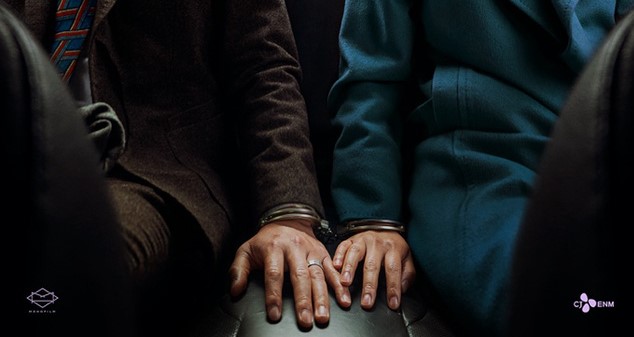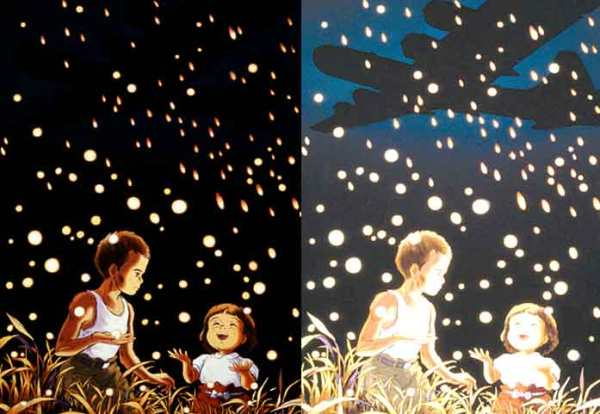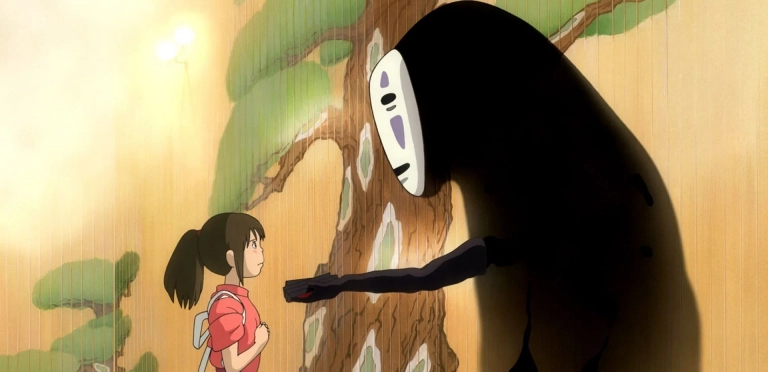Since 2016’s The Handmaiden—my favorite Korean film—Park Chan-wook had been relatively quiet. Then, in 2022, the legendary director returned with Decision to Leave, a movie that at first glance seemed like a typical Korean romance. But to everyone’s surprise, it earned him the Best Director award at the Cannes Film Festival.
I went into Decision to Leave with considerable skepticism. First, I’m not a fan of romance—especially Korean melodramas (though I did enjoy films like Burning). Second, the trailer didn’t excite me—it lacked the suspense or stylistic punch that’s signature Park Chan-wook. But there were also two reasons I couldn’t resist watching: the first was the buzz that it’s more of a mystery-thriller than a simple romance, and the second—Park Chan-wook himself. This was the man who changed my view of Korean cinema with Oldboy long before the era of Train to Busan, Squid Game, or Netflix-produced K-dramas.
Oldboy was intense, shocking, and unforgettable. Even though Bong Joon-ho won Best Picture at the Oscars with Parasite, I still place both Oldboy and The Handmaiden above it. To me, Park is Korea’s greatest director.
Decision to Leave isn’t an easy watch. It doesn’t shock or twist like Oldboy or drip with sensual tension like The Handmaiden. It’s quieter, slower, with symbolic layers and psychological depth. That’s why it likely won’t appeal to the average viewer. Those expecting a sweeping romance will be disappointed. Those looking for a thrilling detective story? Probably disappointed, too.

So what makes Decision to Leave so compelling?
If you’ve enjoyed films like Wong Kar-wai’s In the Mood for Love or Stanley Kubrick’s Eyes Wide Shut, this one might resonate with you.
Beneath its mystery-thriller surface, the film explores the emotional tension between two people drawn to each other in a morally fraught relationship. Hae-jun, a married detective stuck in a lifeless marriage, finds himself falling for Seo-rae, a murder suspect accused of killing her husband. There’s no physical intimacy, no declarations of love—yet the connection is palpable. Their bond, however, is doomed. Like the mountains and the sea, they are destined never to meet. That’s when they each make a “decision to leave.”
A Different Kind of Goodbye
Personally, I interpret the film’s title as “Decision to Leave” rather than “Decision to Break Up” because it’s Seo-rae who ultimately makes the choice—to leave not just Hae-jun, but everything behind. She doesn’t merely walk away from a relationship; she abandons her life, her sins, and her identity.
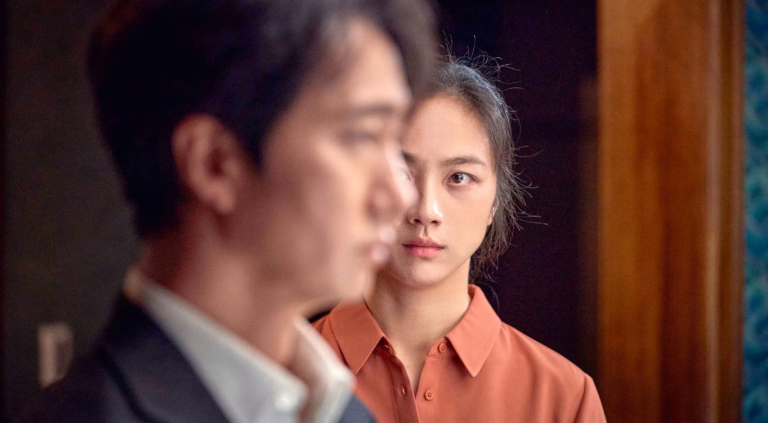
Character Study: Hae-jun & Seo-rae
Hae-jun is introduced as a committed, perhaps obsessive detective. He climbs dangerous cliffs to understand victims, is sleepless and emotionally stunted. His insomnia sends him to night shifts, not the other way around. At first, he seems like a Korean version of Rust from True Detective. But meeting Seo-rae humanizes him. He’s no longer the detached investigator—he becomes a man torn by desire. Even when he uncovers the truth, he can’t bring himself to turn her in. That weakness frustrated me, but it made him feel more real.
Seo-rae is mysterious, intelligent, cunning—but also vulnerable. From her sly glances to cryptic speech, everything about her pulls you in. Initially, it seems like she’s manipulating Hae-jun—perfume during an interrogation break, for instance—but it becomes clear that her feelings are real. Perhaps deeper than his. She might remind you of the femme fatale archetype, like in Gone Girl, but she’s more complex—someone you pity, fear, and admire all at once.
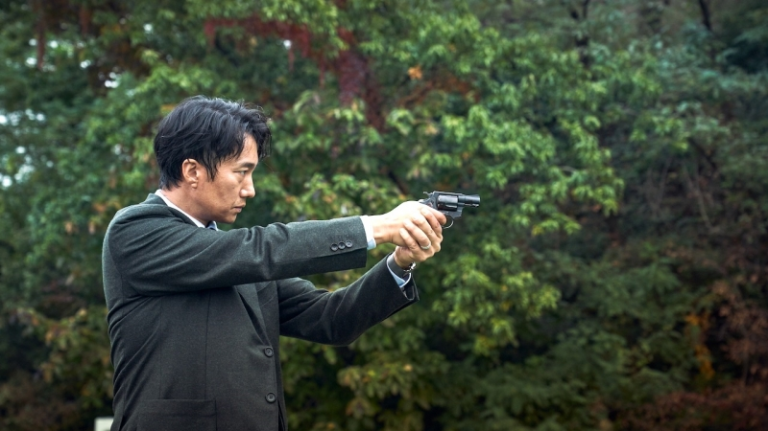
Symbolism: The Mountain and the Sea
Hae-jun is the mountain—rigid, stoic, grounded. Seo-rae is the sea—fluid, mysterious, unpredictable. They complement each other but also clash. Their relationship is yin and yang, never able to truly merge.
The Detective Twist
The film’s best twist doesn’t come from gore or shock, but from a subtle clue—an elderly woman’s fitness tracker reveals that she climbed 180 flights of stairs the day Seo-rae’s husband died. In truth, Seo-rae had used this woman to fake her own GPS data. When Hae-jun finally uncovers this, he confronts her. Instead of arresting her, he hands her the evidence and tells her:
“Throw it into the deep sea, where no one will ever find it.”
He walks away, heartbroken. That’s when the film enters its second phase—one that’s sudden and jarring. Hae-jun returns to his boring life and insomnia. Seo-rae marries again—this time, a conman. Things move quickly, and for a moment, it feels like an entirely different movie. But the plot soon weaves back when the two meet again in a small, unfamiliar town—both of them seemingly trying to escape the past… and each other.
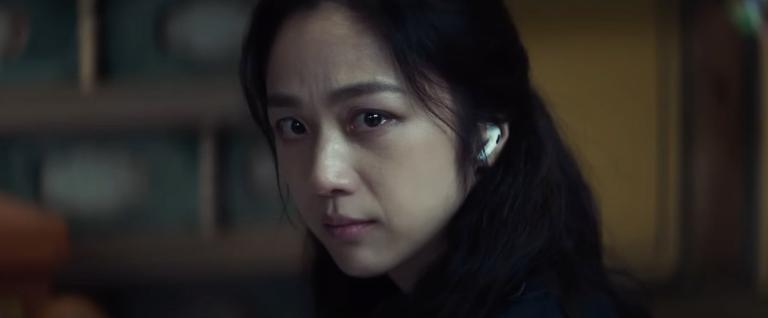
A New Murder, A New Mystery
Soon, Seo-rae’s second husband is killed. Hae-jun investigates, believing Seo-rae is guilty again. But this time, she isn’t the killer—at least not directly. She manipulates the killer into doing it by orchestrating another death. She kills a terminally ill woman who welcomes death. In doing so, she indirectly causes two deaths—and when factoring in her past, she’s responsible for four lives lost.
But is she a heartless murderer?
The film doesn’t give a clear answer. Seo-rae always seems to have a reason, and always appears sympathetic. Some might say she’s gaslighting everyone around her, constantly playing the victim while manipulating those in her orbit. She kills again and again—but always with “a reason.” As she says in one chilling line:
“Killing is like smoking. It’s only hard the first time.”
Yet somehow, we’re never entirely certain. Park Chan-wook crafts her character so well that doubt lingers. In the end, it seems she takes lives only to protect the one man she loves. And finally, she chooses to “leave” not just Hae-jun, but everything.
The Final Goodbye
“Throw it into the deep sea, where no one will ever find it.”
Hae-jun’s line to Seo-rae becomes a metaphor for their relationship, their sins, their love. She replays it repeatedly in a recording titled “Fragments”—a nod to how he once described his broken emotions. And so, she walks into the sea, digging herself a shallow grave at the shoreline, waiting for the tide to rise and take her away.
It’s a poetic ending for Seo-rae, but a gut-wrenching one for Hae-jun, who arrives too late. Standing at the shore, staring at the sea, knowing she’s gone forever—it’s a melancholic close to a quietly devastating story.
On Morality and Emotion
Their relationship, by societal standards, is wrong. Adulterous. Unethical. But we’re human—when the heart speaks, reason goes silent. I don’t judge whether their love is right or wrong. That moral ambiguity is part of what makes films like Decision to Leave, In the Mood for Love, and Eyes Wide Shut so compelling.
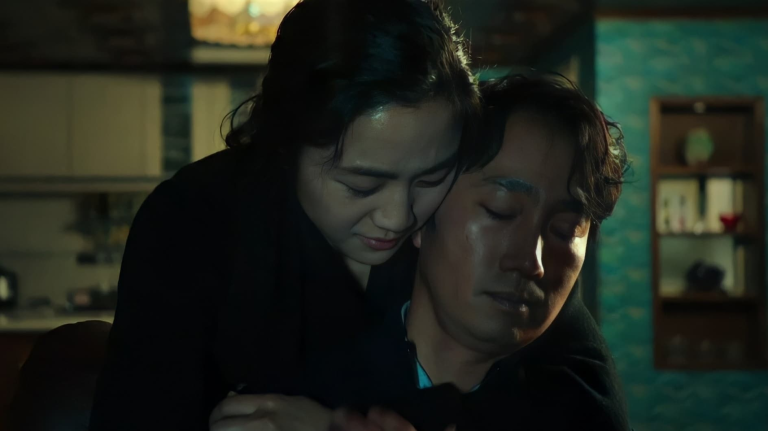
Visuals and Style
While not as glossy as modern K-dramas like Itaewon Class or Squid Game, the film has its own moody, introspective beauty. The use of fast zoom-ins and zoom-outs evokes classic Hitchcock suspense, though personally I found those camera movements distracting.
The true standout is the film’s editing and narrative style. It often feels like we’re inside the characters’ minds, seeing what they imagine while they speak. Conversations bleed into memory, fantasy, and symbolism—creating a uniquely immersive experience.
The Soul of the Film: Characters and Performance
Park Chan-wook’s writing is masterful, but it’s the actors who breathe life into these characters. The biggest standout is Tang Wei as Seo-rae. Had I not known the full story as a viewer, I too might have fallen for her. That’s how convincing she is.
Final Thoughts
Objectively, Decision to Leave is a difficult film. It’s well-acted, beautifully shot, and psychologically rich—but its plot doesn’t reach the heights of Oldboy, The Handmaiden, or Parasite. Still, the meticulous direction, layered symbolism, and unforgettable characters explain why Park Chan-wook won Best Director at Cannes.
For me, its most powerful moment—its essence—is this line:
“Throw it into the deep sea, where no one will ever find it.”

